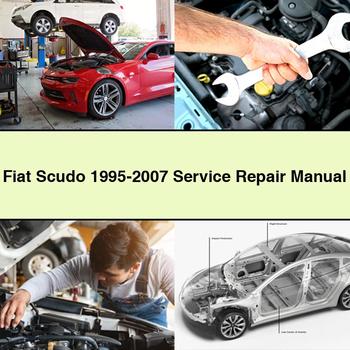Vehicle Segment:
Light Commercial Vehicle (LCV) / Panel Van / Minivan
Key Competitors:
Peugeot Expert, Citroën Jumpy, Renault Trafic, Ford Transit, Volkswagen Transporter
Manual Value Proposition:
Empowers owners and technicians with comprehensive, dealer-level repair information, saving money and ensuring proper vehicle maintenance.
Vehicle Design Philosophy:
Practicality, versatility, and efficiency for commercial and passenger transport needs.
Powertrain:
Engine, Fuel System, Emission Control, Intake/Exhaust, Cooling, Lubrication, Ignition, Starting, Charging, Transmission (Automatic & Manual), Drivetrain (Transfer Case, Driveshaft, Differential, Axles)
Chassis:
Suspension, Wheels, Tires, Brakes (Control & Parking), Steering (Column & Power)
Body Electrical:
Air Conditioning, Supplemental Restraint System (SRS), Seat Belts, Engine Immobilizer, Cruise Control, Wipers & Washers, Door Locks, Meters, Audio/Visual, Horn, Windshield/Glass/Mirrors, Instrument Panel, Seats, Engine Hood/Doors, Exterior & Interior Trims, Electrical Systems, Multiplex/CAN Communication
Maintenance:
Scheduled maintenance, fluid checks and changes, filter replacements, inspections.
Diagnostics Troubleshooting:
Systematic troubleshooting guides, fault code interpretation, electrical system diagnosis, wiring diagrams.
Repair Overhaul:
Step-by-step instructions for component disassembly, repair, and reassembly for all major systems.
Depth:
Comprehensive, suitable for DIY enthusiasts and professional mechanics. Includes detailed substeps, notes, cautions, and warnings.
Compatibility:
All PC based Windows OS, Mac, Linux
Printability:
Yes, all pages are printable.
Digital Binding:
N/A (Downloadable PDF)
Digital Paper Type:
N/A (Digital Format)
Download Speed:
Instant High Speed Download
Software Requirements:
WinZip & Adobe PDF Reader
Engine Options General:
The Fiat Scudo (Type 220) offered a range of petrol and diesel engines. Diesel variants were particularly popular for commercial use.
Common Diesel Engines:
1.9L TD (Turbo Diesel), 2.0L JTD (Common Rail Direct Injection) Diesel
Petrol Engine Variants:
2.0L (e.g., 8v and 16v variants)
Typical Power Output Diesel:
Approx. 60-110 HP depending on engine variant and turbocharging.
Typical Power Output Petrol:
Approx. 110-136 HP for 2.0L variants.
Fuel Delivery Diesel:
Indirect injection (TD variants) or Common Rail Direct Injection (JTD variants).
Fuel Delivery Petrol:
Electronic Fuel Injection (EFI).
Emission Control Systems:
Catalytic converters (petrol), Diesel Particulate Filters (DPF) on later models, EGR systems.
Cooling System:
Water-cooled, typically with belt-driven fan or electric cooling fan.
Transmission Type Standard:
5-speed Manual Transmission
Transmission Type Optional:
4-speed Automatic Transmission (less common)
Clutch Type:
Hydraulically operated single dry plate clutch.
Transmission Fluid Spec Manual:
API GL-4, SAE 75W-80 or 75W-90 gear oil (specific viscosity and type may vary, consult manual for exact Fiat specification).
Transmission Fluid Spec Automatic:
ATF Dexron III or equivalent (specific type may vary, consult manual).
Body Styles:
Panel Van, Combi (Passenger), Chassis Cab
Wheelbase Variants:
Offered in standard and long wheelbase options.
Cargo Volume Van:
Varies significantly with wheelbase and configuration, typically ranging from 4.5 m³ to 6.6 m³.
Gross Vehicle Weight Rating Gvw:
Typically in the range of 2,000 kg to 2,700 kg depending on variant.
Euro Ncap Rating:
Euro NCAP tested the related Peugeot Expert/Citroën Jumpy and received a 3-star rating (original testing protocols).
Braking System:
Front ventilated discs, rear solid discs or drums. ABS typically optional or standard on higher trims/later models.
Airbags:
Driver airbag standard, passenger airbag optional or standard on some trims.
Seat Belts:
3-point seat belts with pre-tensioners (front seats).
Audio System:
Factory fitted radio/cassette or CD player, often with basic speaker systems. Upgraded options may include CD changers.
Cruise Control:
Optional feature, typically found on higher trim levels or later models.
Multiplexing Can Bus:
The manual covers Multiplex/CAN Communication, indicating the presence of early forms of vehicle network communication for integrating various electronic control units (ECUs).
Oil Change Interval Diesel:
Typically every 10,000-15,000 miles or 1 year, whichever comes first (or as per manual for specific engine).
Oil Change Interval Petrol
Oil Change Interval Petrol:
Typically every 10,000 miles or 1 year, whichever comes first.
Engine Oil Spec Diesel:
ACEA B3/B4 or A3/B4 compliant synthetic diesel engine oil, viscosity typically 5W-40 or 10W-40 (consult manual for specific Fiat approval).
Engine Oil Spec Petrol:
ACEA A3/B3 or A3/B4 compliant synthetic petrol engine oil, viscosity typically 5W-40 or 10W-40 (consult manual for specific Fiat approval).
Coolant Spec:
Ethylene glycol-based coolant with corrosion inhibitors (e.g., Paraflu UP or equivalent Fiat specification).
Brake Fluid Spec:
DOT 4 brake fluid.
Common Diesel Problems:
Glow plug issues, turbocharger wear, fuel injector problems (especially with older JTD systems), EGR valve clogging.
Common Petrol Problems:
Ignition coil failures, sensor issues (e.g., crankshaft position sensor), potential for oil leaks.
Suspension Body Wear:
Wear in suspension components (bushings, ball joints, shock absorbers) due to commercial use, potential for rust on body panels in certain climates.
Electrical System Quirks:
Intermittent electrical faults, especially related to lighting, central locking, and dashboard warnings, can occur due to age and wiring loom wear.
Fiat Lcfs:
Fiat has a long history in light commercial vehicles, with the Scudo building on this legacy.
Sevel Collaboration:
The Scudo was developed in collaboration with PSA Peugeot Citroën as part of the Sevel (Société Européenne de Véhicules Légers) venture. This resulted in the Fiat Scudo, Peugeot Expert, and Citroën Jumpy sharing a common platform and many components.
Manufacturing Location:
Primarily manufactured at the Sevel plant in Hordain, France.
